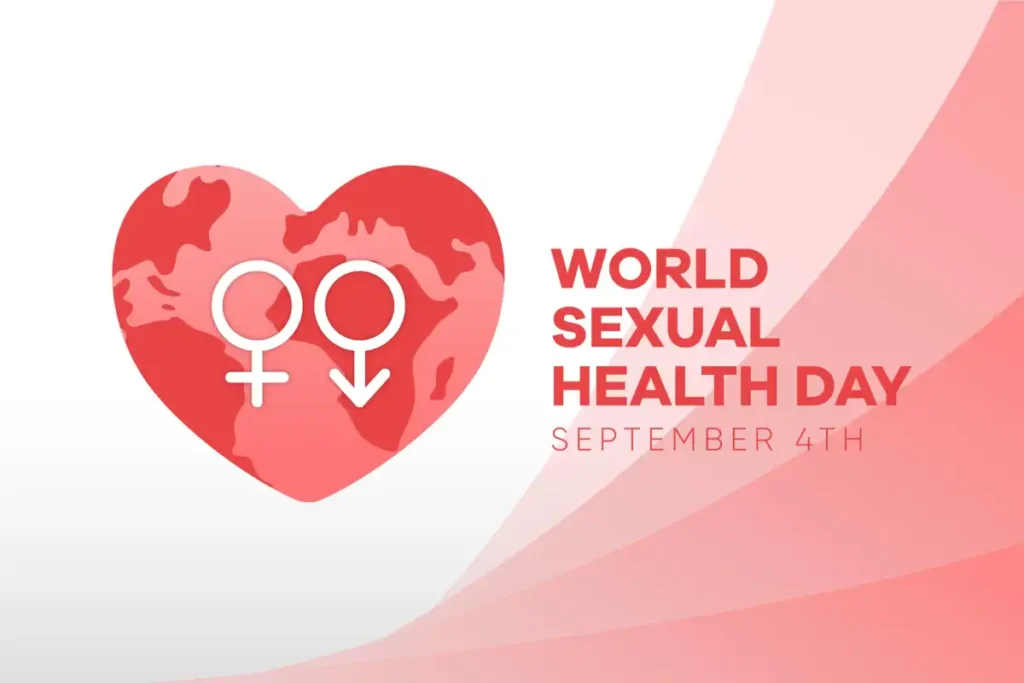World Sexual Health Day: The Diet That Boost Vitality and Intimacy

Every year since 2010, World Sexual Health Day has been observed on September 4 to underline the vital role of sexual health in overall well-being.
When we think about sexual health, it’s easy to rely only on doctors, medicines, or quick fixes. But here’s the truth, your metabolism and hormones are hugely influenced by your daily choices, especially food. So while medical care is important, simple lifestyle shifts, like eating differently, can make a big difference in your energy, mood, and intimacy.
One eating pattern that’s been generating buzz is the Mediterranean Diet (MD). It’s not just about tasty Mediterranean dishes, this lifestyle can significantly boost your sexual vitality, fertility, and overall reproductive health. So, what makes it stand out?
Energy, Mood & Desire
Ever indulged in a greasy burger and felt heavy afterward? Now think of a vibrant plate of veggies, whole grains, and grilled fish. The difference isn’t just about fullness; it’s about how food impacts our chemistry.
The Mediterranean Diet focuses on whole foods, fruits, vegetables, nuts, fish, and unrefined oils, keeping blood sugar steady and mood balanced, which are vital for sustaining sexual energy.
Plus, healthy fats and fish enhance our emotional connection and responsiveness.
🧪 A 2025 study found that people who followed the Mediterranean Diet reported higher sexual desire and satisfaction compared to those on a typical Western diet.2
Hormonal Balance
Just like a DJ sets the vibe at a party, our hormones play a crucial role in sexual health. Imbalance can lead to low energy, mood swings, and dwindling desire.
Swapping out butter for olive oil and adding leafy greens gives your body the antioxidants it needs.
🧪 A 2024 review found that the Mediterranean Diet reduces oxidative stress and inflammation, supporting testosterone regulation, erectile function, and even easing menopausal symptoms like hot flashes and abdominal fat gain by balancing estrogen metabolism.4,5
Fertility Support
Whether or not you’re planning a family, fertility markers are a window into reproductive health. A plate rich in olive oil, fish, nuts, and leafy greens supports both egg and sperm quality, making these foods natural allies.
For women, legumes, whole grains, and seeds provide steady energy and key nutrients that enhance ovulation and support cycle regularity. Meanwhile, berries, citrus fruits, and colorful vegetables supply antioxidants that protect egg cells from oxidative damage.
For men, walnuts, tomatoes, and fatty fish like salmon or sardines are linked to stronger sperm motility and morphology, thanks to their omega-3s, lycopene, and micronutrient density.
🧪 Research shows that following the Mediterranean Diet not only improves sperm quality : motility, morphology, and count, but also lowers the risk of low sperm count by up to 75%, while high intake of ultra-processed foods has the opposite effect.1,3
Vaginal & Urogenital Health
Sexual health isn’t just about desire and reproduction; comfort and freedom from infections matter, too. Here, Mediterranean Diet’s fiber, probiotics (from yogurt and fermented foods), and polyphenols step in.
Pairing the Mediterranean Diet with specific probiotic-rich foods or supplements can further protect against recurrent urinary tract and vaginal infections, creating a healthier environment for intimacy.
🧪 Research shows that diets high in plant-based fibers encourage the growth of beneficial Lactobacillus bacteria in the vaginal microbiome, helping reduce infections and discomfort.6
The Takeaway
The Mediterranean Diet isn’t a “sexual superfood hack.” It’s a lifestyle rooted in simple, flavorful meals that support your body, hormones, and emotional health all at once. Think of it as an act of daily self-care that extends into your sexual well-being.
So next time you drizzle olive oil on your salad, snack on a handful of walnuts, or cook fish with herbs, remember, you’re not just eating for your heart or waistline. You’re fueling your sexual vitality, too.
On this World Sexual Health Day, let’s normalize conversations about how what we eat deeply connects with how we feel, love, and connect.
Disclaimer : This content is for informational purposes only and is not a substitute for professional medical advice, diagnosis, or treatment. Always consult a qualified healthcare provider for any questions or concerns regarding your health.
References :
- 1. Oteri, V., Galeano, F., Panebianco, S., Piticchio, T., Le Moli, R., Frittitta, L., Vella, V., Baratta, R., Gullo, D., Frasca, F., & Tumminia, A. (2024). Influence of Mediterranean Diet on Sexual Function in People with Metabolic Syndrome: A Narrative Review. Nutrients, 16(19), 3397. https://doi.org/10.3390/nu16193397
- 2. Ghasemi, A., Jaladat, A.M., Sharifi, M.H. et al. The effects of mediterranean and Persian diet on sexual function and semen parameters quality among infertile men: a randomized controlled trial. Sci Rep 15, 21656 (2025). https://doi.org/10.1038/s41598-025-98985-y
- 3. Petre, G. C., Francini-Pesenti, F., De Toni, L., Di Nisio, A., Mingardi, A., Cosci, I., Passerin, N., Ferlin, A., & Garolla, A. (2025). Role of Mediterranean Diet and Ultra-Processed Foods on Sperm Parameters: Data from a Cross-Sectional Study. Nutrients, 17(13), 2066. https://doi.org/10.3390/nu17132066
- 4. Sultan, M.I., Ibrahim, S.A. & Youssef, R.F. Impact of a Mediterranean diet on prevention and management of urologic diseases. BMC Urol 24, 48 (2024). https://doi.org/10.1186/s12894-024-01432-9
- 5. Haghshenas, N., Ghoreishy, S.M., Noormohammadi, M. et al. Association between modified mediterranean diet score and menopause-specific quality of life and symptoms: a cross-sectional study. Sci Rep 15, 31682 (2025). https://doi.org/10.1038/s41598-025-17578-x
- 6. Liu, P., Lu, Y., Li, R., & Chen, X. (2023). Use of probiotic lactobacilli in the treatment of vaginal infections: In vitro and in vivo investigations. Frontiers in cellular and infection microbiology, 13, 1153894. https://doi.org/10.3389/fcimb.2023.1153894